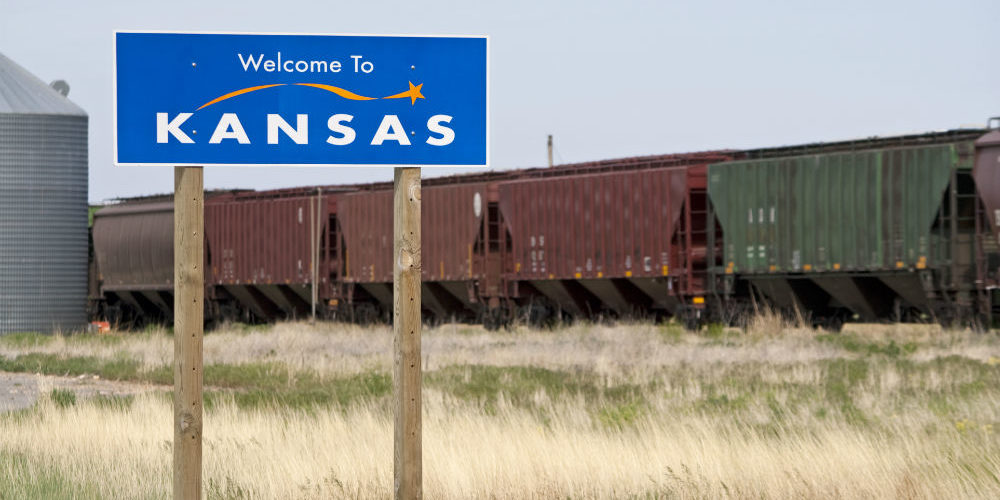Anyone who has considered adoption has probably been overwhelmed with the amount of information there is out there regarding adoption. This article will give you a brief overview of adoption in Kansas. I will attempt not to overwhelm you, however, there is just a lot of information you should know about adoption in Kansas.
I also want to point out that this is not legal advice and is only written from my own research and experience. I urge you to contact a local adoption agency or attorney for legal advice regarding adoption in Kansas. With that said, let’s see what I can tell you about adoption in Kansas.
There are several different types of adoption in Kansas. While each one is unique in its own way, most are governed by the same rules and regulations. For the sake of this article, we will focus on the following: agency adoptions, private adoptions, adoption from foster care, stepparent adoption, and international adoptions.
Agency: Agency adoptions occur with the help of an agency. Birth mothers tend to review families from a waiting list and choose their prospective adoptive family that way. The agency will assist adoptive families and usually birth parents as well. These adoptions can be open or semi-open depending on the relationship between adoptive families and birth families.
Private: Private adoptions occur when the adoptive families and birth parents find one another without the utilization of an agency.
Foster Care: Foster care adoptions can also be known as public adoptions. Adopting a child from the foster care system is an adoption that occurs when the child is under the care of the state of Kansas. The ultimate goal of foster care is to provide parent reunification. When parent reunification is not possible, there will be a chance of adopting from the foster care system. This process can take an unknown amount of time which can sometimes be extra hard on families. Make sure to check with a local agency to determine if foster care is right for your family.
Stepparent: Stepparent adoption is the adoption of a child by the spouse of one of the biological parents. In order for a stepparent adoption to occur, there must be a death of one of the parents or a termination of parental rights of the other parent. Special circumstances might outweigh these requirements. Make sure to check with an adoption agency or adoption attorney to clarify for your situation.
Relative or Kinship: These types of adoption occur when a child is adopted by a family member. They usually are adopted by grandparents or an aunt or uncle. These types of adoption usually take place when parents of minor children die or are no longer able to care for the child.
International: International adoption is the adoption of a child born in another country. The requirements for each country vary from country to country.
Process:
This is a general overview of the process for adoption in Kansas. Depending on the type of adoption you are pursuing, there may be additional steps and circumstances that are required. Make sure to check with your local adoption agency or attorney to discuss what those might be.
Once you have decided what adoption route is best for your family, the next best thing to decide, if you haven’t already, is what agency you are going to work with. Finding an agency and/or worker that you are comfortable with is a crucial part of the adoption process. The adoption process if very personal and very emotional, having someone you work with that fits your personality and the needs of your situation is going to be important.
Many of the adoptions listed above, begin with the termination of parental rights for the biological parents. Kansas law requires a waiting period of 12 hours after the birth of a child before the birth mother can give consent to the adoption. The adoption decree (more about that later) then can’t be entered for 30 days.
Adoptive parents are required to complete a home study. I will go into the details of this process below. However, every adoption must have this step completed before moving on.
All adoptions must have an adoption hearing. The court will review all the information provided and if it’s approved then this will finalize the adoption process. Before this hearing is conducted, notice must be given to all who need to give their consent. This usually includes the biological parents, the agency, or a court-appointed legal representative. The prospective adoptive parents must file an adoption petition. If you are working with an agency and/or adoption attorney, they will help you prepare these documents. The adoption petition provides information to the court which generally includes identifying information for both the child and the prospective adoptive parents, the child’s biological information, the legal reason for the termination of the birth parent’s rights, and a statement that the adoptive parents are fit to raise the child and that the adoption is in the best interest of the child. A name change request for an adoptive child is usually necessary as well if the adoptive parents want the child to have their last name. Lastly, if the court determines that the adoption of the child is in the child’s best interest, the judge will approve the adoption. This is usually called the adoption decree or final decree of adoption. This document finalizes the adoption.
Requirements:
Age: Many prospective adoptive parents wonder if there is an adoption age limit or a certain minimum age you have to be to adopt. In Kansas, there are no age requirements to adopt, except the adoptive parent(s) must be a legal adult, usually 18 years of age. However, some adoption agencies will set a certain age requirement within their own program. Also, some international countries have age requirements.
Marriage: Many prospective adoptive parents also wonder if they have to be married to adopt in Kansas. There are no requirements of marriage for prospective adoptive parents in Kansas. As long as a single parent passes all of the legal background checks and any other agency requirements, they are eligible to adopt. It should be noted that some have expressed that a single parent may experience a longer wait if they are adopting by way of private domestic infant adoption. It has also been noted that if single parents choose to pursue foster care adoption, they may have a shorter wait time and more adoption opportunities. It is unclear why that is, but that is what statistics have shown. However, if you are married then you must jointly adopt the child together. As mentioned above, international countries may have other requirements regarding marriage status. If you are single and interested in adopting internationally, I suggest that you contact a local agency or attorney to discuss what countries may allow you to adopt.
Same-Sex: Along the same lines, many adoptive parents have asked if same-sex couples can adopt in Kansas. In Kansas, there are no laws banning LGBTQ adoptions. However, if you are a married LGBTQ couple pursuing international adoption, you may be unable to adopt a child in certain countries that have not legalized same-sex marriage. You may also have to locate a local adoption agency that does not discriminate against the LGBTQ community. Each agency will have its own requirements regarding this.
Criminal History: All prospective adoptive parents must go through a thorough screening and background check in order to adopt in Kansas. If you’re worried that a crime will prohibit you from being able to adopt then you should know that it depends on the type of crime committed, the sentencing, and the history of the prospective adoptive parent. However, anyone who has been convicted of a felony crime against another person, assault, battery, kidnapping, a sex offense, abuse, abandonment, or any provision of the Uniform Controlled Substances Act, may not be able to complete an adoption. Make sure to discuss this with an adoption professional to discuss whether a personal criminal history will impact your ability to adopt.
Home Study:
Most of the adoptions listed above, require the prospective adoptive parents to undergo an investigation called a home study. This process is usually conducted by a social worker or state agency and is meant to ensure the prospective parents are fit to care for a child. Again, this is why I always tell people it is important that you feel comfortable with your social worker. Preparing for the home study can take up a lot of your time. Most agencies require a lot of paperwork. If you haven’t already, your first step will be to complete an application with whatever agency you are choosing to work with. Then, you can begin to prepare for the home study. Each agency may have its own list of requirements, but it will most likely include the following:
- Background check and clearances. This usually includes state and federal criminal background checks
- Proof of good physical and mental health from a doctor
- Financial statements, which could include tax returns, pay stubs, proof of employment, etc.
- References. Each agency is going to require a different number of character references, usually only one or two of them coming from family.
- An autobiography from each prospective parent.
This is just a general overview of what each agency may require you to produce. They may require less and they may require more. Make sure to know what they are going to request ahead of time so you can be working on it during the process.
Once you have compiled the necessary documents, your worker will arrange for at least one in-home visit. Some agencies may require more than one in-home visit. The social worker will be “inspecting” your home to ensure it is a stable environment to raise a child in. Your worker will be checking to make sure your home fits all of the standard size requirements, as well as all fire safety requirements. Your social worker will also be able to provide assistance in preparing your home for a child, i.e., teach you any modifications you may need to make to your home to ensure the child’s safety. This could be as simple as making sure you have enough smoke detectors or outlet covers on your electrical sockets. If your social worker makes suggestions that need to be made in order for your home to be “ready” then he/she may return for another visit to make sure those corrections were made. During your in-home visit, your social worker will interview all of your household members. This could include children already in your home if they are old enough.
Depending on your situation and where you are adopting from, your agency may also require post-placement visits with your social worker. These visits, again, are to ensure your child is adjusting well to your family and vice versa. These visits usually occur until the adoption is finalized.
Most adoptive parents stress about completing their home study and having their social worker “inspect” their home. This is a normal feeling. However, as I mentioned a few times above, this is why I find it important to work with an agency and/or worker that you feel comfortable with. It is a very personal and emotional situation and having someone you feel comfortable with makes this process so much smoother. I know it can be intimidating and overwhelming. Just try to remember to be yourself and don’t overthink the situation. Remember that they are there to help you, not to make you feel like less than normal!
I know this process can seem like it will never end and is over the top, however, it is in place for your protection and the well-being of your adoptive child. Try to keep that in the back of your mind as much as possible. Again, this article was intended to be a general overview of adoption in Kansas, for more information, check with a local adoption agency or adoption attorney in your area. I wish you the best of luck pursuing adoption in Kansas!
Are you and your partner ready to start the adoption process? Visit Adoption.org or call 1-800-ADOPT-98 to begin your adoption journey. We have 130+ years of adoption experience and would love to help you.




